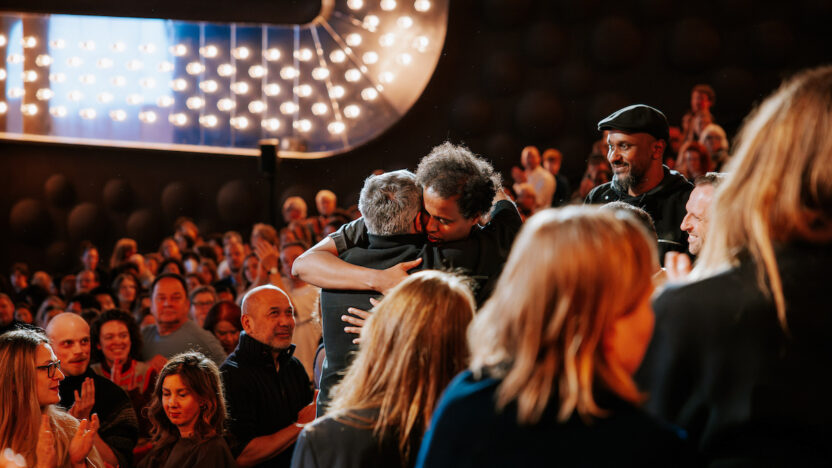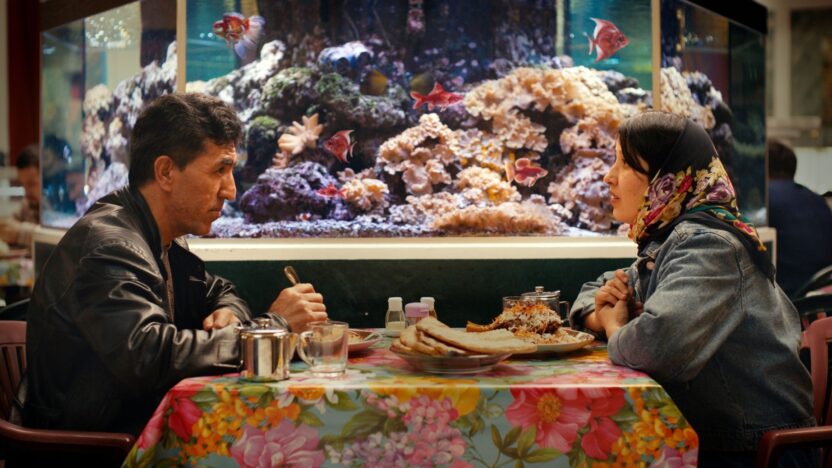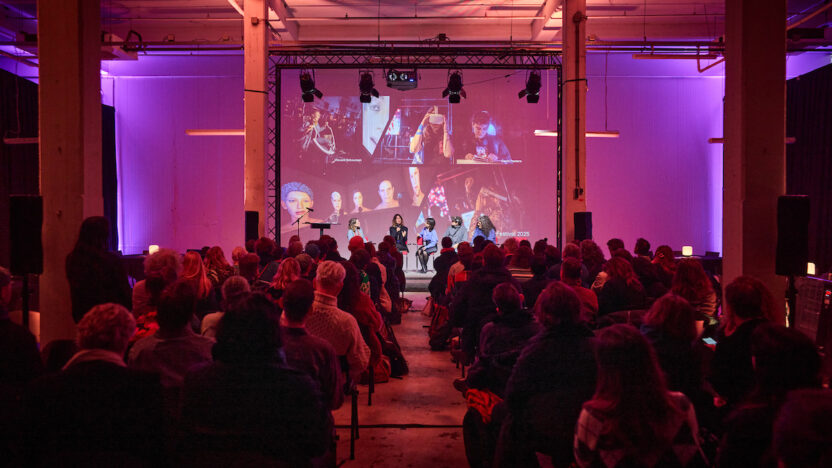“If you make stuff that’s brilliant, it will get seen eventually”: Samm Haillay on Pro Hub mentoring at IFFR 2025
“A lot of the time people come to me and say, ‘I’ve made one film, what do I do now?’”, says Samm Haillay, award-winning English producer and expert IFFR Pro Hub mentor at IFFR 2025. “It’s a very hard question to answer because we’re all wondering what we should do next. I’ve made 11 films and I’m still designing what I’m doing next.”

Samm’s feature-producing career began with Better Things (Duane Hopkins, IFFR 2009) that he presented at CineMart in 2004, before its premiere at Cannes’s Semaine de la critique in 2008. He divides his attention equally between fiction, factual, hybrid and artists’ moving image, with credits including Light Years by Esther May Campbell (Venice Settimana Internazionale della Critica, 2015), Self Made by Gillian Wearing (MoMA Director’s Fortnight 2010 and SXSW in 2011) and Island of the Hungry Ghosts by Gabrielle Brady, named Best International Documentary at Tribeca in 2018, one of the over 70 international awards and nominations his work has received – not to mention the two companies Third and Kirlian he has to his name.
“If you’re not touched by what they’re doing, it’s hard to become enthusiastic.”
“Do I like the people first and foremost? And am I moved?”, he says, answering what has drawn him to such a diverse portfolio of projects over the course of his career, that more often than not feature outsider characters. “I’m drawn to projects which have an ambition to reach people emotionally. I would guess most writers or directors or producers would say, ‘Yeah, that’s what I’m doing.’ But if you’re not touched by what they’re doing, it’s hard to become enthusiastic.”

This people-centred approach, and his keen desire to offer help and advice to those starting out, might be able to trace its roots back to his place on the 2003 edition of Rotterdam Lab, IFFR’s producer training workshop. At that point in his career, he learnt the crucial lesson “don’t stay on the island; look beyond your nearest borders” – something particularly relevant to UK producers. Since then he’s worked firmly in the international context, navigating a number of complex co-productions and mentoring countless global filmmaking teams within the world’s premiere development labs.
“It’s like a hive with lots and lots of people coming in and trying to mine information.”
IFFR, he says, keenly demonstrating this point, feels like a home festival. “Lots of festivals have a market. Lots of festivals do a little bit of training alongside. But having the Pro Hub where people who have a film in the festival can sign up to meet mentors, that’s totally unique, I think. It’s like a hive with lots and lots of people coming in and trying to mine information.”
He offers expert advice on funding and positioning a project, as well as industry-wide connections, but more than that, provides a listening ear and priceless enthusiasm. “How do you energise these people? It’s not about making their films for them. It’s how can you give them hope and support so they can go back and they can drive on and get their work funded or made or seen or all three.”
“If I, as a Disabled working class kid from the north of England, can get films into Cannes, then anyone can.”
Offering this help is part of a commitment to access that defines his attitude as a film industry mentor. “Coming from the margins or a marginalised place, it feels like you’re never going to get access. It’s not a meritocracy: if you’ve got money and access, you have a lot more ability to do the things that we all want to do. But you’ve got to make sure your work is as high a standard as possible. You’ve just got to keep going, to stick around, show with your work that you deserve a place at the table. If you make stuff that’s brilliant, it will get seen eventually. If I, as a Disabled working class kid from the north of England, can get films into Cannes, then anyone can.”

Such advice, centred around the concept of “quality in equality” was something he was very keen to share during the IFFR Pro Dialogue panel Access Is Power – Disability Inclusion Transforms Film Industry Culture, where he spoke from his perspective as a Disabled filmmaker alongside a number of speakers including those from the BFI’s Disabled delegation to IFFR this edition. “I think it’s great that Rotterdam acknowledged the fact that there are people in the industry who live with disability, because my experience is that isn’t often acknowledged.”
“Nobody ever thought of me as a Disabled producer and only that, and the work was judged on the work alone.”
Samm wasn’t always comfortable identifying as Disabled. “Now a little bit further into my career, I feel able to self-identify”, he says. “I think I was probably proved right at the start of my career to not self-identify as Disabled because nobody ever thought of me as a Disabled producer and only that, and the work was judged on the work alone.” All of his films included Disabled characters, though, “just as part of the melee of the makeup. That was specific and by design.”
Nevertheless, in typical pragmatic style, he has plenty of thoughts on the marked improvements the industry needs to make regarding disability access, like incorporating audio description as a fundamental part of the sound mix, and making sure film students are fully aware of access issues and practicalities in the same way they are aware of how to change a camera lens. “That seems obvious advice”, he says, reminding us that “it’s not just people in wheelchairs that like ramps. People who’ve got heavy stuff to carry like ramps too. There’s a lot of heavy stuff to carry on a film set. It doesn’t necessarily slow things down or make things more expensive if you’re smart and clever with it.”
“IFFR welcomes you, gives you a hug, makes sure you’re warm, comfortable, looked after, before sending you back on your way. Hopefully more nourished and more equipped to do better.”
Always on the lookout for a collaboration, Samm made connections with fellow panelists Lisette Kelder and Mari Sanders that may lead to a working collaboration. “That sense of equality from being on a panel together meant that we were able to contact each other afterwards and discuss and talk about the work.” It’s one of a number of fruitful relationships that will have stemmed from IFFR 2025, including direct involvement in a number of projects that he mentored, one of his happy takeaways from this edition.
“IFFR welcomes you, gives you a hug, makes sure you’re warm, comfortable, looked after, before sending you back on your way. Hopefully more nourished and more equipped to do better.”
– by Fraser White
A list with articles
-

IFFR closes its 55th edition celebrating an uptick in new, younger audiences and industry attendees
Published on:-
News
-
Press release
-
-

Shahrbanoo Sadat’s No Good Men opens Berlinale 2026 among strong HBF and CineMart lineup
Published on:-
CineMart
-
Hubert Bals Fund
-
IFFR Pro
-
-

